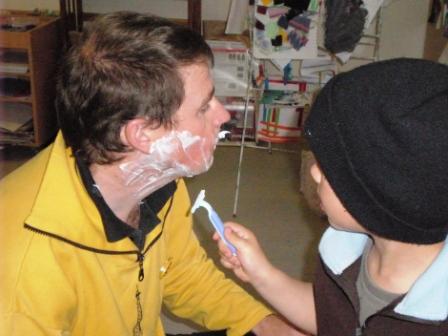Key Findings on Salary Attestation Affordability:
- 95% of people in the ECE sector surveyed supported an increase in the minimum wage rates centres must at least pay all their qualified and certificated teachers in return for public funding for employing certificated teachers. This included owners/ employers, of which 80% supported an increased in the prescribed wage rates. From next month the attestation hourly wage for degree qualified teachers will increase by 22 cents. The increase of 22 cents an hour falls far short of what employers/ owners have said they are able to tolerate and the level of increase that respondents in general saw as optimal. 92% wanted the prescribed wages to be increased by $2 or more per hour and 8% by $1 – $2. 59% owners/ employers supported an increase of between $2 – $4 an hour, and 10% supported an increase of $5 an hour or more.
- Wage parity for all ECE teachers with kindergarten and primary school colleagues was supported by 39% and a further 54% supported this if funding was increased to match kindergarten funding. Only 3% did not support wage parity for all teachers working in teacher-led ECE settings and 4% did not hold a view on this.
- Kindergarten respondents supported teachers working in other early childhood settings to be paid at the same levels as themselves (wage parity), with 55% believing that this could be achieved now in education and care centres if there was stronger accountability for funding to be spent on wages and not taken as profit or spent on other things by service providers. This compares to only 10% of employers/ owners who believed wage parity would be possible without an increase in funding to support it.
Salary Attestation Affordability
Report published July 23, 2019.
As part of our pre-Budget annual Early Childhood Confidence Survey, this year we included a couple of extra questions to find out how the sector views teacher pay levels and the minimum wage rates set by the Ministry of Education.
The survey of 900 people in the sector (see Footnote 1) was carried out near the end of April 2019.
Within days of the survey going online the Ministry of Education announced it would be reviewing the wages rates it requires early childhood service providers to at least pay their certificated teachers at, to access higher rates of funding. The survey results on how much the sector thinks the wage rates for attestation should be increased by, can therefore be compared to what the ministry has decided the new rates will be from August 1, 2019.
Question 1: Should the Ministry of Education increase the prescribed wage for qualified teachers in ECE centres? Background information: In 2017 the minimum adult wage in NZ for all workers was $15.75 an hour. It is currently $17.70 and next year it will rise to $18.90. The Ministry of Education’s prescribed minimum wage rates for teachers have not increased since 2017. The rates are $19.74, $21.65 and $22.29 depending on teaching qualifications, and this is the minimum at which teachers in centres not covered by a collective agreement must be paid.
|
Answer |
All 900 respondents |
Employers/owners |
Teachers/ staff |
|
Yes |
95% |
80% |
98% |
|
No |
5% |
20% |
2% |
The sector views the prescribed minimum wage rates for teachers to be too low. 95% of respondents wanted the ministry to increase the rates.
A surprisingly high proportion of employers and owners (80%) would be happy for the minimum wage rates to be increased.
Explanations provided by employers and operators for supporting an increase, included:
“It is the carrot that will entice staff to join the ECE sector and remain in the sector. The increase should benefit those who completed training and are loyal to the sector.”
“We have to value our children and the people who care and educate them. If we don’t invest in teachers then we won’t see positive outcomes for children.”
“The value of educating younger children must be reflected in pay levels. Higher paid jobs are generally always more respected. To become a more respected profession, the pay needs to be increased, starting at the minimum wage.”
Teachers said things like:
“The lack of teachers in ECE is because of the pay rate. The Ministry need to make this a priority otherwise ECE teachers are not going to see there is any point in training.”
“Minimum adult wage is rising in NZ and the jobs associated with minimum wage often have little responsibility. ECE has high responsibility and is a profession and minimum wage is not much lower than the starting rates for qualified ECE teachers who have spent 3 years training and have student loans.”
“Being qualified means, we invested time and money into a career. We are expected to earn at least a fair wage for our time we invest with these tamariki. I for one is over waiting for these promised changes. I am currently studying again to get myself in a better financial position because I cannot afford many things on my wages. Sick of waiting for empty promises. So, I am fixing my problems myself instead. I will miss ECE but not the treatment of being an ECE teacher.”
Question 2: If you answered, yes, then by how much per hour should the Ministry increase the prescribed minimum wage for early childhood teachers?
|
Answer |
All respondents |
Employers/owners |
Teachers/staff |
|
$1 – $2 |
8% |
23% |
5% |
|
$2 – $3 |
24% |
36% |
22% |
|
$3 – $4 |
21% |
23% |
22% |
|
$4 – $5 |
20% |
8% |
23% |
|
more than $5 |
27% |
10% |
28% |
An option of less than $1.00 was not given in the question but it is clear from the answers that it was considered that the Ministry should increase the prescribed wage rate by more than this per hour.
So, was the recent increase announced by the ministry anywhere near what the sector wanted? (see Footnote 2)
From the 1 August 2019 the Ministry is increasing the Qualification 3 rate for a teacher who holds a 3-year degree by only 22 cents and the Qualification 3+ rate applicable to teachers with a 4-year teaching degree by only 22 cents.
Question 3: Teachers in kindergartens have pay parity with teaches in primary schools. Should all teacher-led services (private and community-based) be required to pay qualified teachers at least at equivalent rates to what teachers employed in kindergartens are paid?
|
Answer |
All respondents (n = 900) |
Employers/owners (n= 149) |
Education and care centre respondents (n = 669) |
Kindergarten respondents (n = 102) |
|
No |
3% |
9% |
2% |
7% |
|
Yes |
39% |
10% |
37% |
55% |
|
Yes, providing that funding is also increased to match kindergarten funding |
54% |
75% |
59% |
31% |
|
No view on this |
4% |
6% |
2% |
7% |
More than 90% of all respondents supported wage parity with or without services receiving a funding increase.
One teacher in a commercial ECE service said:
“We are University qualified teachers. I have taken the exact same paper as someone who studied to be a primary teacher. How is it they are on more money and have less hours on the floor with children? The output of work an ECE teacher does is immense.”
Kindergarten respondents who supported teachers in other ECE services to have pay parity with them did so for reasons such as that:
“Early childhood services are providing the same level of care and education as kindergarten with less perks. Longer working hours, less non-contact and more expectations to work outside of work hours. It’s not fair.”
“We are all in this for the same reason so why not be equitable.”
“Profit should not come before the best interests of the child.”
Kindergarten respondents were slightly more likely to be of the view than other groups of respondents that non-kindergarten services would be able to absorb increased staffing costs if pay parity was extended.
A teacher working in a community-based education and care centre, for example, said that yes this should happen but:
“It won’t happen without a funding increase because too many corporates want their piece of the pie.”
A service owner/employer opposed to pay parity for early childhood teachers said that:
“It (wages) should be by negotiation, not dictated.”
Footnotes
- 52% of the respondents came from privately-owned early childhood centres, 26% from community-owned, and 11% from free kindergartens. The sample was therefore roughly representative of the sector, and the mix of private – community services. The remainder of the 900 came from services such as home-based ECE, hospital-based ECE and parent-led or were people for example who worked in early intervention and in teacher education.
- The Ministry of Education prescribed wage rates that early childhood centres must agree to paying all their qualified and certificated teachers at least at, in return for receiving higher rates of funding for the employment of teachers
|
Qualification levels |
2015 |
2017 |
2019 (from 1 August) |
|
Q1 & Q2 rates |
$40,458 |
$41,067 or $19.74 hour |
$45,491 |
|
Q3 rate (holds a recognised 3yr teaching degree, an advance diploma or has done an upgrade on teaching diploma to a degree) |
$44,373 |
$45,041 or $21.65 hour |
$45,491 or $21.87 hour |
|
Q3+ rate (examples of quals at this level: a 4 yr B.Tchg degree, a Bachelors degree together with a recognised ECE qualification) |
$45,680 |
$46,368 or $22.29 hour |
$46,832 |









